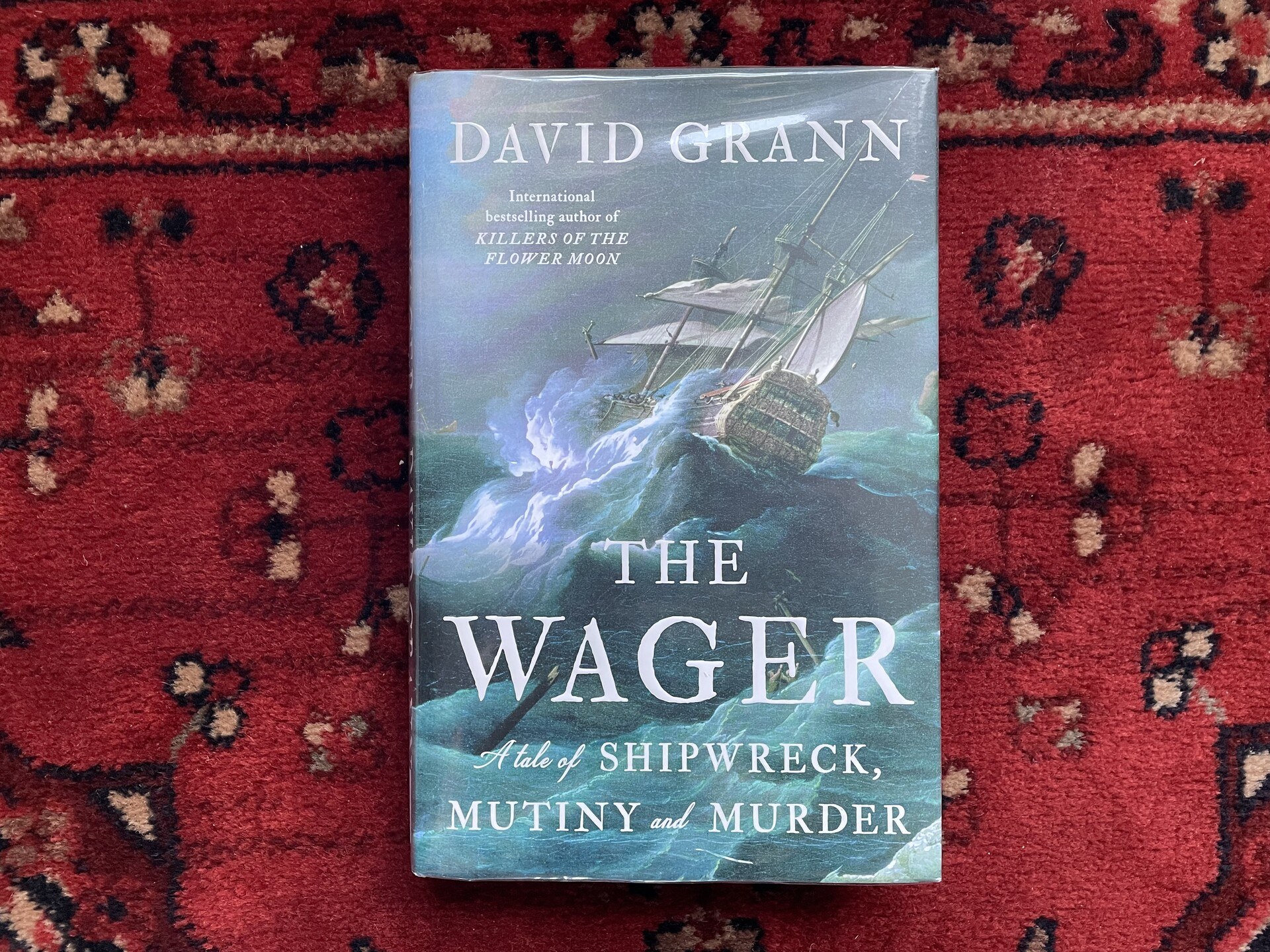The Wager
by David Grann
Published 2023 257 pages
I'm not sure if it's as good as everyone on The New Yorker Book Review Podcast said it was—but it was good.
The story of the Wager mutiny was, by all accounts, a sort of forgotten adventure for a long time. It occurred back in the 1740s, when folks scarcely knew which way was up and when nations liked to do a war every now and again to keep each other on their toes. The war in question here was The War of Jenkins' Ear, which I'd never heard of before and of which I think I'll never hear again (outside of Wager-related discussions, probably).
Anyway, the Wager in question was a smallish converted man-of-war taking part in a British flotilla whose purpose was to sail around the world trolling the Spanish wherever they went. The Spanish, apparently, had heard about this, and sent their own armada (if they're Spanish, a flotilla is called an armada) off to counter-troll the British. British and Spanish alike, they all got typhus and scurvy and a not insignificant number of crew members died rounding Cape Horn, too. The Wager wrecked on the coast of modern-day Chile, and the survivors engaged in what Wikipedia calls a "slow-motion mutiny" over the decision of where to go next. The captain of the ship, ever mission-focused, wanted to travel a short ways up the coast to continue trolling the Spanish and maybe steal one of their boats (a gambit that Grann notes could have eventually paid off, if they could have gotten there in the first place!); the crew wanted to try and sail back through the Strait of Magellan to make friendly Portuguese Brazil. Under increasing strain, lack of supplies, and with the additional motive of the captain shooting one of the crew in the head for whining a bit too loud, the slow-motion mutiny succeeded. The crew commandeered the remaining lifeboats and, though hampered by a couple of counter-mutinies and significant attrition by disease, made it to Brazil, and eventually home. At which point, they all started doing really terrific spin against their erstwhile captain.
Meanwhile, back in Chile, the captain and a few loyalists failed to reach the Spanish settlements they wanted to raid, but were miraculously saved by trade-enthusiastic indigenous people, who led the captain and loyalists up the coast in exchange for the sailors' boats and guns. The Spanish, however, unmoved by the sailors' plight and still wishing to get in on some trolling of their own, promptly chucked em in jail for a few years. By and by, only the captain and two loyal crew members (well, one loyal one—the other deserted back to Spain after a little while) made it back to Blighty, only to find a bunch of anti-captain spin and raring to engage in a little spin of their own.
Most everyone published memoirs of the event ahead of what promised to be an epic showdown in the courts: was the captain's murder of that one guy enough to justify the mutiny? Were the mutineers scoundrels bent on undermining the authority of the Royal Navy? The verdict was reached with more of a whimper than a bang, everyone getting off more or less scot-free after agreeing that they were all basically at fault in extremis.
Oh, and the one loyalist that made it back with the captain was Lord Byron's granddad!
Previous
A proper post about doing a triathlon: how it felt, what I did, and who couldn't get my name right at the end.